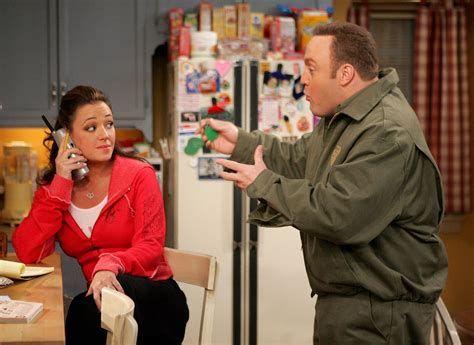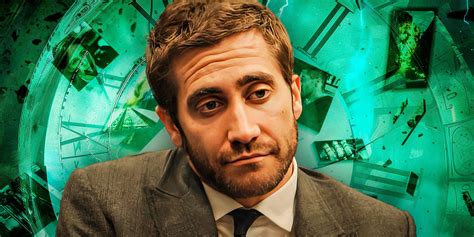
Jamie Foxx has publicly addressed and refuted a conspiracy theory linking his health scare last year to allegations against Sean “Diddy” Combs, labeling the rumors as “crazy.”
Actor and musician Jamie Foxx has directly addressed swirling conspiracy theories linking his health crisis last year to allegations surrounding Sean “Diddy” Combs. In a recent social media post, Foxx vehemently denied any connection, dismissing the rumors as baseless and harmful. This marks the first time Foxx has directly addressed the specific theories tying his medical emergency to Combs, who is currently facing multiple lawsuits alleging sexual assault and misconduct.
The conspiracy theories, which gained traction online, suggested that Foxx’s health scare was somehow connected to information he possessed regarding Combs’ alleged activities. These theories often circulated on social media platforms and in online forums, fueled by speculation and innuendo.
Foxx took to Instagram to address the rumors head-on. “They try to say I’m blind, paralyzed, stole all my money,” Foxx wrote in his post, directly referencing the various speculations surrounding his condition and finances. He then addressed the Diddy connection directly, stating, “I’m not cloned. And I did not get sick because of anything I did,” he stated, adding, “I went to the pearly gates.”
Foxx’s post aims to dispel the misinformation and set the record straight regarding his health. The actor’s representatives have previously maintained his privacy during his recovery, releasing limited information about the nature of his illness. This silence, however, contributed to the proliferation of rumors and conspiracy theories.
The actor’s health scare began in April 2023, when he experienced what was described as a “medical complication” while filming the Netflix movie “Back in Action.” He was hospitalized for several weeks, and details about his condition remained scarce, leading to widespread speculation about the severity and cause of his illness.
Foxx’s recent statement not only denies the Diddy connection but also pushes back against other rumors that have circulated during his recovery. By addressing the conspiracy theories directly, Foxx seeks to regain control of the narrative and protect his reputation from further damage.
This incident highlights the challenges celebrities face in navigating the digital age, where misinformation can spread rapidly and conspiracy theories can take hold, particularly in the absence of clear and consistent information. Foxx’s decision to speak out underscores the importance of addressing false narratives directly, even when dealing with sensitive personal matters.
The allegations against Diddy, meanwhile, continue to unfold, with multiple lawsuits and investigations ongoing. These allegations, combined with Foxx’s health scare, created a fertile ground for conspiracy theories to emerge and spread online. Foxx’s statement represents a direct attempt to separate himself from the ongoing controversy surrounding Combs and to address the misinformation that has impacted his personal and professional life.
Context of Jamie Foxx’s Health Scare:
In April 2023, news broke that Jamie Foxx had been hospitalized due to an unspecified “medical complication.” The initial reports were vague, leading to widespread concern and speculation about the actor’s health. While Foxx’s representatives confirmed his hospitalization, they provided limited details about the nature of his illness, citing privacy concerns.
The lack of information fueled rumors and conspiracy theories, with some reports suggesting that Foxx was in critical condition. These rumors were amplified by the actor’s extended absence from the public eye and the limited updates from his family and representatives.
Throughout his recovery, Foxx remained largely out of the spotlight, focusing on his health and well-being. He eventually made a public appearance in July 2023, where he addressed his health scare and thanked his fans for their support. However, he still did not disclose the specific nature of his illness.
Foxx’s recovery process has been closely followed by his fans and the media. His recent statement addressing the Diddy conspiracy theories marks a significant step in his efforts to reclaim his narrative and address the misinformation that has circulated during his absence.
The Diddy Allegations and Their Impact:
Sean “Diddy” Combs, a prominent figure in the music industry, has been the subject of numerous allegations of sexual assault, misconduct, and abuse. These allegations have been brought forth in multiple lawsuits, and Combs is currently facing investigations by law enforcement agencies.
The allegations against Combs have had a significant impact on his career and reputation. Several companies and brands have severed ties with him, and his business ventures have come under scrutiny. The allegations have also sparked a broader conversation about power dynamics and abuse in the entertainment industry.
The allegations against Combs have also fueled online speculation and conspiracy theories, with some individuals attempting to connect unrelated events and individuals to the controversy. The conspiracy theories linking Jamie Foxx’s health scare to Combs are one example of how the allegations have spread beyond the immediate parties involved.
The Spread of Conspiracy Theories Online:
The internet and social media platforms have become breeding grounds for conspiracy theories. The ease with which information can be shared and the lack of fact-checking mechanisms on some platforms have contributed to the proliferation of false and misleading narratives.
Conspiracy theories often thrive in the absence of clear and accurate information. When official sources are silent or provide limited details, individuals may fill the void with their own interpretations and speculations. This can lead to the spread of misinformation and the creation of alternative narratives that are not based on facts.
The spread of conspiracy theories can have serious consequences. It can erode trust in institutions, incite violence, and harm individuals’ reputations. It is important to be critical of the information we consume online and to rely on credible sources for news and information.
Foxx’s Response and Its Significance:
Jamie Foxx’s decision to address the conspiracy theories directly is a significant step in his efforts to reclaim his narrative and protect his reputation. By speaking out against the false and misleading rumors, Foxx is attempting to set the record straight and prevent further harm.
Foxx’s response also underscores the importance of addressing misinformation directly, particularly in the age of social media. When false narratives are allowed to spread unchecked, they can take on a life of their own and cause lasting damage.
By taking a stand against the conspiracy theories, Foxx is sending a message that he will not be silenced or intimidated by false and malicious rumors. His response serves as a reminder that individuals have the right to defend themselves against false accusations and to protect their reputations from harm.
Navigating the Digital Age:
The incident involving Jamie Foxx and the Diddy conspiracy theories highlights the challenges celebrities and public figures face in navigating the digital age. The internet and social media platforms have created new opportunities for communication and connection, but they have also created new challenges in terms of managing reputation and combating misinformation.
In the digital age, it is important for individuals to be proactive in managing their online presence and to address false or misleading information promptly. It is also important to be critical of the information we consume online and to rely on credible sources for news and information.
Celebrities and public figures can also work with their representatives and public relations teams to develop strategies for managing their online reputation and addressing misinformation. This may involve issuing statements, engaging with fans on social media, or taking legal action against individuals who spread false or defamatory information.
Ultimately, navigating the digital age requires a combination of vigilance, communication, and strategic planning. By being proactive and responsive, individuals can protect their reputations and minimize the harm caused by misinformation.
Impact on Jamie Foxx’s Career:
Jamie Foxx is an Academy Award-winning actor, singer, and comedian with a long and successful career in the entertainment industry. His health scare in 2023 raised concerns about his ability to continue working and performing.
While Foxx has made a public appearance and addressed his health scare, it remains to be seen how his illness will impact his future career. It is possible that he may need to take on fewer roles or adjust his work schedule to accommodate his health needs.
However, Foxx’s talent and popularity are undeniable, and he has a strong support system of fans and colleagues who are eager to see him return to work. It is likely that he will continue to be a prominent figure in the entertainment industry for many years to come.
Foxx has several projects in the works, including the Netflix movie “Back in Action,” which he was filming when he experienced his health scare. It is expected that he will return to work on this project once he has fully recovered.
Foxx is also involved in several other film and television projects, and he is likely to continue to pursue new opportunities in the entertainment industry. His talent and versatility make him a valuable asset to any project, and he is sure to remain in demand for many years to come.
The Broader Implications for Celebrity Culture:
The incident involving Jamie Foxx and the Diddy conspiracy theories has broader implications for celebrity culture and the way in which celebrities are perceived by the public.
In the digital age, celebrities are under constant scrutiny, and their every move is subject to public comment and criticism. This can make it difficult for celebrities to maintain their privacy and to control their public image.
The spread of conspiracy theories about celebrities is a reflection of the public’s fascination with fame and fortune. It also reflects a growing distrust of institutions and authority figures.
Celebrities can combat the spread of conspiracy theories by being transparent and open about their lives and by engaging with their fans on social media. They can also work with their representatives and public relations teams to develop strategies for managing their online reputation and addressing misinformation.
Ultimately, the way in which celebrities are perceived by the public is a complex and ever-changing phenomenon. By being proactive and responsive, celebrities can protect their reputations and minimize the harm caused by misinformation.
Conclusion:
Jamie Foxx’s statement addressing the conspiracy theories linking his health scare to Sean “Diddy” Combs is a significant development in a complex and multifaceted situation. The incident highlights the challenges celebrities face in navigating the digital age, where misinformation can spread rapidly and conspiracy theories can take hold.
Foxx’s decision to speak out against the false and misleading rumors underscores the importance of addressing misinformation directly and protecting one’s reputation from harm. His response serves as a reminder that individuals have the right to defend themselves against false accusations and to control their own narrative.
The allegations against Sean “Diddy” Combs and the spread of conspiracy theories surrounding Jamie Foxx’s health scare have broader implications for celebrity culture and the way in which celebrities are perceived by the public. By being proactive and responsive, celebrities can navigate the challenges of the digital age and protect their reputations from harm.
The entire situation underscores the need for responsible consumption of online content and the importance of relying on credible sources for news and information. It also highlights the power of social media to both connect and divide, and the need for individuals to be mindful of the impact of their words and actions online. Jamie Foxx’s decision to address the rumors head-on is a powerful example of taking control of one’s narrative in the face of rampant speculation and misinformation. It remains to be seen how this situation will continue to unfold, but Foxx’s statement is a clear indication that he is determined to set the record straight and move forward with his life and career.
Frequently Asked Questions (FAQs)
-
What was the nature of Jamie Foxx’s health scare in 2023?
The exact nature of Jamie Foxx’s medical complication in April 2023 has not been publicly disclosed. His representatives initially described it as a “medical complication” and have maintained his privacy throughout his recovery. Foxx himself has not revealed the specific illness.
-
What are the conspiracy theories linking Jamie Foxx to Diddy?
The conspiracy theories suggest that Jamie Foxx’s health scare was somehow related to information he allegedly possessed about Sean “Diddy” Combs’ alleged activities. These theories often circulated online and claimed that Foxx was silenced or targeted because of his knowledge.
-
How did Jamie Foxx respond to these conspiracy theories?
Jamie Foxx addressed the conspiracy theories in an Instagram post where he directly denied any connection between his health scare and Diddy. He stated, “I’m not cloned. And I did not get sick because of anything I did. I went to the pearly gates.”
-
What are the allegations against Sean “Diddy” Combs?
Sean “Diddy” Combs is facing multiple lawsuits alleging sexual assault, misconduct, and abuse. These allegations have been brought forth by several individuals and are currently under investigation.
-
What is the significance of Jamie Foxx addressing these rumors publicly?
Jamie Foxx’s public statement is significant because it directly addresses and refutes the conspiracy theories that have been circulating online. It is an attempt to reclaim his narrative, protect his reputation, and dispel misinformation surrounding his health scare and any alleged connection to Diddy. The statement emphasizes the importance of addressing false narratives, especially in the age of social media where rumors can spread rapidly.
-
What specific examples of rumors or misinformation did Foxx address besides the Diddy connection?
In his Instagram post, Foxx also addressed rumors about his physical condition and financial status, stating, “They try to say I’m blind, paralyzed, stole all my money.” This indicates that the conspiracy theories extended beyond just the Diddy connection and encompassed broader false claims about his health and well-being.
-
What were the sources of the conspiracy theories about Jamie Foxx’s health?
The conspiracy theories primarily originated and spread through social media platforms, online forums, and speculative news articles. The lack of official information about Foxx’s health condition created a vacuum that allowed rumors and unsubstantiated claims to proliferate.
-
Did Jamie Foxx’s representatives or family members previously comment on the conspiracy theories before his recent statement?
Prior to Foxx’s direct statement, his representatives and family members largely remained silent on the specific conspiracy theories. They focused on maintaining his privacy and providing general updates on his recovery without addressing the rumors head-on. This silence, while intended to protect his privacy, inadvertently contributed to the spread of misinformation.
-
How might the spread of these conspiracy theories impact Jamie Foxx’s career and personal life?
The spread of conspiracy theories can negatively impact Jamie Foxx’s career by damaging his reputation and creating uncertainty among potential employers and collaborators. Personally, it can cause stress, anxiety, and emotional distress for him and his family due to the false and malicious claims being circulated.
-
What broader implications does this situation have for how celebrities are treated in the digital age?
This situation highlights the challenges celebrities face in managing their public image in the digital age. The ease with which misinformation can spread online, combined with the intense public scrutiny they face, makes them particularly vulnerable to harmful rumors and conspiracy theories. It underscores the need for celebrities to proactively manage their online presence and address false narratives directly to protect their reputation and well-being.
-
What role did social media algorithms play in the spread of these conspiracy theories?
Social media algorithms often prioritize engagement, which can inadvertently amplify sensational or controversial content, including conspiracy theories. The more users interact with such content, the more likely it is to be shown to others, creating a feedback loop that can accelerate the spread of misinformation.
-
How can individuals discern between credible news sources and unreliable sources that promote conspiracy theories?
Individuals can discern between credible and unreliable sources by checking the source’s reputation, fact-checking policies, and editorial standards. Credible news organizations typically have a track record of accurate reporting, transparent ownership, and a commitment to journalistic ethics. It’s also important to be wary of sources that rely on anonymous sources, sensational headlines, or biased language.
-
What legal options, if any, does Jamie Foxx have to combat the spread of these conspiracy theories?
Jamie Foxx may have legal options such as pursuing defamation lawsuits against individuals or organizations that have spread false and defamatory information about him. To succeed in a defamation case, he would need to prove that the statements were false, published to a third party, caused him harm, and were made with malice or negligence.
-
How might the legal proceedings against Sean “Diddy” Combs affect the public’s perception of other celebrities associated with him?
The legal proceedings against Sean “Diddy” Combs could negatively affect the public’s perception of other celebrities associated with him, especially if they are perceived as having been aware of or complicit in his alleged misconduct. This is known as guilt by association, and it can damage the reputations of individuals who have had professional or personal relationships with Combs.
-
What advice would you give to other celebrities who find themselves targeted by similar conspiracy theories?
Advice for other celebrities targeted by similar conspiracy theories includes:
- Address the rumors directly: As Jamie Foxx did, directly addressing the rumors can help set the record straight and prevent further misinformation.
- Consult with legal counsel: Seek legal advice to understand your options for combating defamation and protecting your reputation.
- Work with a public relations team: Develop a strategic communication plan to manage your online presence and address false narratives effectively.
- Focus on credible sources: Rely on credible news organizations and fact-checkers to counter misinformation.
- Engage with fans responsibly: Use social media to connect with fans and share accurate information, but be mindful of the potential for online harassment and misinformation.
- Prioritize your mental health: Conspiracy theories can be stressful and emotionally draining, so it’s important to prioritize your mental health and seek support from trusted friends, family members, or mental health professionals.
-
What role do celebrity gossip blogs play in the spread and perpetuation of these types of rumors?
Celebrity gossip blogs often prioritize sensationalism and speculation over accuracy, which can contribute to the spread and perpetuation of rumors and conspiracy theories. They may publish unverified information or amplify unsubstantiated claims to generate clicks and engagement, even if it harms the reputations of celebrities.
-
How can fans and followers of celebrities contribute to a more responsible online environment regarding rumors and speculation?
Fans and followers of celebrities can contribute to a more responsible online environment by:
- Being critical of the information they consume: Question the credibility of sources and be wary of sensational headlines or unsubstantiated claims.
- Fact-checking before sharing: Verify information before sharing it on social media or with others.
- Respecting privacy: Avoid spreading rumors or speculating about private matters that are not based on factual information.
- Reporting misinformation: Flag or report false or misleading content on social media platforms.
- Supporting credible news sources: Rely on reputable news organizations and fact-checkers for accurate information.
- Promoting responsible online behavior: Encourage others to be respectful, critical, and responsible in their online interactions.
-
What are some of the psychological factors that might contribute to people believing and spreading conspiracy theories?
Psychological factors that might contribute to people believing and spreading conspiracy theories include:
- Need for control: Conspiracy theories can provide a sense of control in the face of uncertainty or anxiety.
- Confirmation bias: People tend to seek out and interpret information that confirms their existing beliefs, even if it is inaccurate.
- Distrust of authority: Conspiracy theories often arise from a distrust of institutions, governments, or authority figures.
- Social identity: Believing in conspiracy theories can strengthen a person’s sense of belonging to a particular group or community.
- Cognitive biases: Various cognitive biases, such as the availability heuristic (overestimating the likelihood of events that are easily recalled) and the halo effect (generalizing positive impressions from one area to another), can contribute to the acceptance of conspiracy theories.
-
In what ways might the rise of AI-generated content (e.g., deepfakes) exacerbate the spread of celebrity-related conspiracy theories in the future?
The rise of AI-generated content, such as deepfakes, could significantly exacerbate the spread of celebrity-related conspiracy theories by making it easier to create convincing but entirely fabricated content that appears to show celebrities saying or doing things they never actually did. This could make it even more difficult for individuals to discern between fact and fiction and could fuel the spread of misinformation and harmful rumors.
-
What are the potential long-term effects of this incident on public trust in celebrities and the media?
This incident, along with similar instances of celebrity-related conspiracy theories, has the potential to erode public trust in both celebrities and the media. When celebrities are targeted by false and malicious rumors, it can damage their credibility and make it more difficult for the public to trust them. Similarly, if the media is perceived as contributing to the spread of misinformation or sensationalizing celebrity gossip, it can undermine public trust in journalistic institutions. These effects highlight the importance of responsible online behavior and the need for both celebrities and the media to prioritize accuracy and transparency in their communications.









